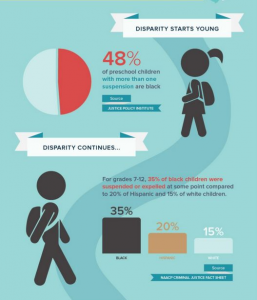Marijuana Possession, Cultivation and Sales Defense Attorneys:
Violation of Health and Safety Code Sections 11358, 11359, 11360
Kestenbaum Eisner & Gorin, LLP, is rated in the top 5% of U.S. pre-eminent law firms by the Martindale-Hubbell national lawyer review. Our criminal defense attorneys have been helping clients obtain superior results for over 50 years. Our firm specializes in the defense of all drug crimes. We do everything possible to ensure our clients receive reliable and aggressive representation in and out of court.
 Our firm partners are former Los Angeles prosecutors and specialize in defending marijuana possession, cultivation and sales charges, including violations of Health and Safety Code Sections 11359 (Possession for Sale of Marijuana), 11358 (Cultivation of Marijuana) and 11360 (Sale and Transportation of Marijuana).
Our firm partners are former Los Angeles prosecutors and specialize in defending marijuana possession, cultivation and sales charges, including violations of Health and Safety Code Sections 11359 (Possession for Sale of Marijuana), 11358 (Cultivation of Marijuana) and 11360 (Sale and Transportation of Marijuana).
Marijuana Possession for Sale, Cultivation, and Transportation:
Health and Safety Code Sections 11358, 11359, 11360
California law defines these offenses as felonies, which carry the strong possibility of a state prison sentence. For each offense, the prosecution must prove that the defendant knew the drugs were in his or her presence, and that the defendant intended to sell, cultivate, or transport the marijuana.
If the police do not obtain fingerprints from the wrapping or container the drugs are located in, the defense can contest to whom the drugs truly belonged and argue that the defendant is not responsible for the drug sales or transportation allegations. Constitutional violations committed by the police may lead to the entire case being thrown out of court.
It is extremely important that you retain the legal services of an experienced San Fernando Valley criminal defense attorney who understands how to successfully defend marijuana charges. Our law firm has secured the dismissal of numerous marijuana cases through aggressive representation before charges are filed, at preliminary hearings, and in court.
Medical Marijuana
Despite the passing of Proposition 215 in California, some LAPD and LASD officers choose arrest suspects and seize legally held medicinal marijuana and settling the issues in court. This conflict between state and federal laws has led to abuses of power by the local police. Our aggressive defense to marijuana charges has led to the dismissal of numerous cases of marijuana sales and possession.
In a recent case handled by our firm, a client had substantial monies and several ounces of marijuana returned to him by the LAPD after the case was dismissed in the middle of a preliminary hearing due to a lack of evidence. The LAPD “expert on drug sales” was not familiar with the provisions of Medical Marijuana laws and as a result, the case was dismissed.
 In another recent case, our attorney’s were successful in preventing a criminal filing and seizure of property against a Medical Marijuana Clinic after a search warrant led to arrests and the seizure of a large quantity of cannabis.
In another recent case, our attorney’s were successful in preventing a criminal filing and seizure of property against a Medical Marijuana Clinic after a search warrant led to arrests and the seizure of a large quantity of cannabis.
In cases not involving medical marijuana our defense lawyers can argue that the marijuana was possessed for personal use, and that the case merits a drug-treatment program, not jail time. The quantity, method of packaging, amount of money seized, and evidence of pay/owe sheets are all factors the defense can use in arguing the marijuana was not possessed for sale.



 The Law of Attraction for Children is based on the ancient tale of the Huna philosophy of Polynesia. The tale, passed down from generation to generation by the Kahunas (priests and priestesses who were keepers of “the secret”), lays out the fundamental idea in Huna philosophy – that we create our experience of reality. In short, we are co-creators with the universe.
The Law of Attraction for Children is based on the ancient tale of the Huna philosophy of Polynesia. The tale, passed down from generation to generation by the Kahunas (priests and priestesses who were keepers of “the secret”), lays out the fundamental idea in Huna philosophy – that we create our experience of reality. In short, we are co-creators with the universe. Imparting this knowledge in a charming storyline, The Law of Attraction for Children follows Thaynna, a little girl growing up in Polynesia, who learns the law of attraction. In following Thaynna, young readers learn how to use their creative minds to facilitate their daily lives.
Imparting this knowledge in a charming storyline, The Law of Attraction for Children follows Thaynna, a little girl growing up in Polynesia, who learns the law of attraction. In following Thaynna, young readers learn how to use their creative minds to facilitate their daily lives.
 The ACLU argues that race also plays a factor in the findings. Mark P. Fancher, ACLU of Michigan Racial Justice Project staff attorney and principal author of the report, said “we found that black kids are consistently suspended in numbers that are considerably disproportionate to their representation in the various student populations.”
The ACLU argues that race also plays a factor in the findings. Mark P. Fancher, ACLU of Michigan Racial Justice Project staff attorney and principal author of the report, said “we found that black kids are consistently suspended in numbers that are considerably disproportionate to their representation in the various student populations.” While I am sympathetic to the points made by the ACLU, I think they go too far. While I understand the notion that students who present discipline problems are entitled to an education, I would also argue that all students have a right to an education. This education should be free from distraction, harassment and violence caused by other students. The ACLU’s recommendation that only firearm offenses should be subject to automatic expulsions is absurd. Under the ACLU’s position, students in school should feel safe from gun violence, but expulsion for a good old fashioned knife fight (ala West Side Story) is going too far. The simple truth is students who are disruptive and violent should be removed from the classroom to give an opportunity for the rest of the students to have a quality education. We should not hinder the entire student body’s education because of a few bad apples.
While I am sympathetic to the points made by the ACLU, I think they go too far. While I understand the notion that students who present discipline problems are entitled to an education, I would also argue that all students have a right to an education. This education should be free from distraction, harassment and violence caused by other students. The ACLU’s recommendation that only firearm offenses should be subject to automatic expulsions is absurd. Under the ACLU’s position, students in school should feel safe from gun violence, but expulsion for a good old fashioned knife fight (ala West Side Story) is going too far. The simple truth is students who are disruptive and violent should be removed from the classroom to give an opportunity for the rest of the students to have a quality education. We should not hinder the entire student body’s education because of a few bad apples.